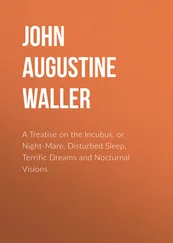He went through these but found in most instances that the articles could be accessed only by subscribing to the journals that published them. The subscription costs were greater than his curiosity, and if the language describing her article on pattern resonance was any indication, wading through the full texts would be migraine-inducing.
Pattern Resonance
Cooperstown was situated around the southern end of a long, narrow lake in the rural hills of Otsego County. It was a town with a personality split between quiet money and baseball tourism, between a main street glutted with sports-memorabilia stores and sedate side streets where Greek Revival homes were shaded by century-old oaks. It was Middle America in the middle of town and Brooks Brothers under the tall trees.
The drive from Walnut Crossing took a little over an hour, longer than he’d expected, but it didn’t matter, because he’d left early enough to get to the Otesaga well ahead of his appointment time. He had a notion in the back of his mind that he might like to hear Holdenfield’s speech, or at least part of it.
Late March was not a popular upstate vacation season, especially not for lake resorts. The parking lot was barely a third full, and the estatelike grounds, though perfectly groomed, were deserted.
Gurney believed he could tell how expensive a hotel was by how quickly and smilingly the front door was opened for him. By that measure he concluded that a room at the Otesaga would be well beyond his means.
The elegance of the lobby confirmed his impression. Gurney was about to ask for the location of the Fenimore Room when he came upon a wooden easel supporting a sign with an arrow that answered his question. The arrow pointed down a broad hallway with classical panel moldings on the walls. The sign indicated that the room was reserved that day for a meeting of the American Philosophical Psychology Association.
A duplicate sign stood next to an open door at the end of the hallway. As Gurney approached it, he heard a burst of applause. When he reached it, he could see that Rebecca Holdenfield had just been introduced and was taking her place behind a raised podium at the far end of the room-a high-ceilinged space in which a gathering of Roman senators would not have seemed out of place.
Not bad , thought Gurney.
His quick guesstimate put the number of chairs at about two hundred, of which most were taken. The vast majority of the attendees were male, and most seemed to be middle-aged or older. He stepped inside the room and took an end seat in the back row-an echo of his behavior at weddings and other events at which he felt out of place.
Holdenfield caught his eye but gave no sign of recognition. She smoothed out a few sheets of paper on the top of the podium and smiled at her audience. The expression conveyed confidence and intensity rather than warmth.
Nothing new in that, thought Gurney.
“Thank you, Mr. Chairman.” The smile was switched off, the voice was clear and commanding. “I’m here today to bring you a simple idea. I don’t ask you to agree with it or to disagree with it. I ask you to think about it. What I bring you is a new view of the role of imitation in our lives-and how it affects everything we think, feel, and do. I suggest to you that imitation is a survival instinct of the human species-as indispensable as sex. This simple idea is revolutionary . Imitation has never been classified as an instinct-a tendency to action, driven by the buildup and release of tension. But isn’t that exactly what it is?”
She paused. Her audience was perfectly still.
“Perhaps the most revealing and overlooked fact about imitation is that… it feels good . The process of imitation provides the human organism with a form of pleasure-a release of tension. In everything we do, there is a bias in favor of repetition-because it feels good.”
Holdenfield’s eyes were shining, and her audience seemed entranced.
“We enjoy seeing what we have seen before and doing what we have done before. The brain seeks pattern resonance because resonance provides pleasure.”
She stepped away from the podium, as though to connect more directly with her listeners. “The survival of any species depends on each new generation’s being able to replicate the behaviors of the previous generation. The replication may arise from genetic programming or from learning. Ants rely heavily on genetic programming for their behavior. We rely heavily on learning. Insect brains are born knowing virtually everything they need to know, while human brains are born knowing virtually nothing they need to know. The survival imperative of the insect is to act. The survival imperative of the human is to learn . The insect’s instincts drive it through the specific acts of its life cycle, while our imitation instinct drives us through the process of learning how to act .”
As far as Gurney could judge from the back of the room, everyone was hanging on her words. In this room she was a rock star.
“Within this instinct lie the roots of art, habit, the joy of creativity, the pain of frustration. Much human misery results from the imitation instinct’s being directly opposed by external rewards and punishments. Consider the case of a parent who hits a child to punish him for hitting another child. Two lessons are being taught: that hitting is the wrong way to deal with behavior we find objectionable (since it is being punished) and that hitting is the right way to deal with behavior we find objectionable (since it is being modeled as the way to punish). The parent who hits a child to teach him not to hit is, in fact, teaching him to hit. The potential for psychic damage is enormous when the behavior being modeled is the behavior being punished.”
For the next half hour, it seemed to Gurney that Holdenfield was just repeating in other words what she’d already said. But far from boring her audience, she seemed only to be enthralling them further. Pacing and gesturing dramatically in this grand meeting room, she looked like a woman in the heaven she’d always imagined.
Finally she returned to her position behind the podium with an expression that struck Gurney as nothing short of triumphant. “Therefore I ask you to consider the possibility that the drive to satisfy the imitation instinct may be the most important missing ingredient in our understanding of human nature itself. Thank you for your attention.”
Strong applause spread through the room. A florid-faced, white-haired member of the audience rose in the front row and addressed his fellow attendees with the reassuring voice of an old-time radio announcer. “On behalf of the group, I’d like to thank Dr. Holdenfield for that remarkable presentation. She said she wanted to give us something to think about, and there’s no doubt she did exactly that. A most intriguing concept. In about fifteen minutes, we’ll have our open bar and a nice buffet. In the meantime you have an opportunity for questions and comments. Is that acceptable to you, Rebecca?”
“Of course.”
The “questions” that followed were largely composed of praise for the originality of her thinking and expressions of gratitude for her presence. After twenty minutes of this, the white-haired man rose again, deferentially thanked Rebecca once more on behalf of the group, and announced that the bar was now open.
“Interesting,” said Gurney with a wry smile.
Holdenfield gave him a look that was half assessing, half combative. They were sitting at a small patio table on a veranda overlooking a manicured lawn, dotted with boxwood shrubs. The sun was shining, and the lake beyond the lawn was as blue as the sky. She was wearing a beige silk suit and a white silk blouse. She had no makeup on, no jewelry-with the exception of a pricey-looking gold watch. Her auburn hair was loosely arranged, neither long nor short. Her dark brown eyes were studying him. “You showed up quite early,” she said.
Читать дальше












